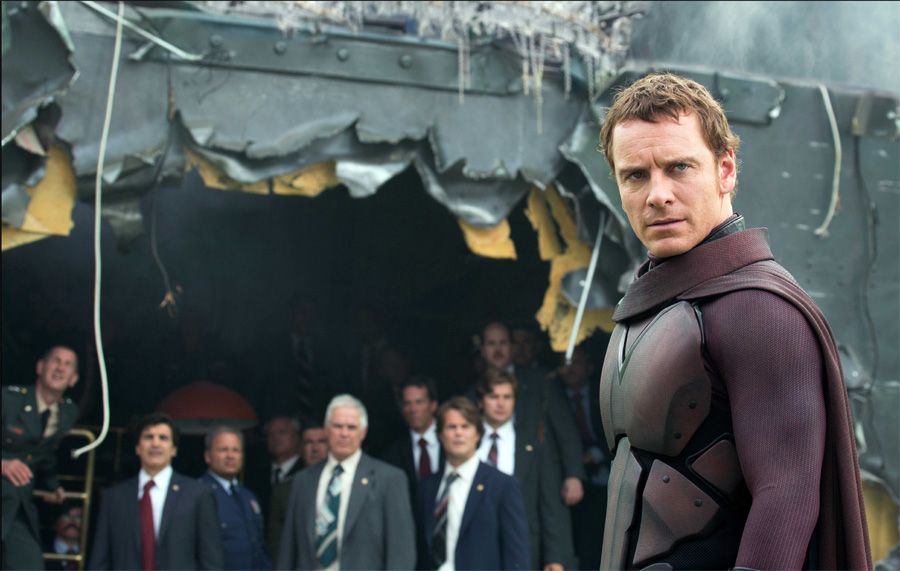X-Men: Days of Future Past and the Unimportance of Film Continuity
Written by Ian Thomas Malone, Posted in Blog, Pop Culture
As impressive as the Marvel Cinematic Universe has been from both a critical and financial standpoint, the evolution of superhero movies does present some risks. Both the X-Men film franchise, which is owned by Fox and therefore is separate from the movies connected to The Avengers, and the DC film universe have followed in Disney’s footsteps of moving away from stand-alone films in favor of franchises with large connected plotlines. In theory, this is pretty smart. If end credit scenes and brief cameos can draw fans to films they might not otherwise be incline to see, then why not? More movies, more money.
X-Men: Days of Future Past took one of Marvel’s most endeared story lines and used it to connect the cast’s of the original trilogy with the cast of X-Men: First Class, which was a deceivingly ambitious effort given the star power involved. With so many Oscar winners and nominees amongst the principal cast, the stakes were high to deliver a top-notch story that correctly utilized the talent involved. With a run time of a little over two hours, an equal division of screen time would’ve certainly come at the cost of the story.
Thankfully, this was something that director Bryan Singer was aware of. While this story called for both casts, the true meat of the film belongs to the newer cast. It’s nice to see Patrick Stewart, Ian McKellen, Halle Berry, Ellen Page and Anna Paquin all back in the roles that brought this franchise to the big screen, but James McAvoy, Michael Fassbender, Jennifer Lawrence, and Nicholas Hoult are the future and rightfully took point on the film. Hugh Jackman excelled in his role as a mediator between the two generations without stealing all the spotlight. Wolverine might be a fan favorite, but coming off his second solo film, it was smart not to give him all the attention.
The film also deserves credit for choosing to ignore the blatant plot continuity problems brought forth by X-Men: The Last Stand and X-Men Origins: Wolverine, by far the franchise’s two weakest entries. Old Professor X is back from the dead and the world is in shambles. Why? Who knows and more importantly, who cares?
The biggest problem with a shared universe is the inherent obligation to explain the significance of the other films. This gets you more time with characters who would be in fewer movies without a shared universe, but it comes at a cost. Thor: The Dark World had its moments, but it also felt weighed down by a necessity to intentionally distance itself from The Avengers.
X-Men Days of Future Past chose to only make references to the past films when the plot called for it. The result is a film that’s allowed to embrace the fact that it’s a movie and not a TV show. Part of the reason that this particular film could get away with this is because its source material ignored such problems and also received critical acclaim, but it’s something that other franchise should think about.
Shared universes can take you out of the movie. I’m sure I’m not alone in wondering where Iron Man was when Thor was duking it out with the alien guy in The Dark World. That’s not a big problem now, but more movies in the future means more pressure on these films to make an effort to be conscious of their surroundings. Distractions in film are far more problematic than in television.
Days of Future Past had a story to tell and nothing got in the way of that. A summary of the events leading to the dystopian world that the original cast found themselves in could’ve added half an hour to the story. The majority of Paquin’s scenes were cut which suggests that Singer knew that there could be too much of a good thing. Rogue was a good character, but it’s hard to believe that her presence was missed by anyone other than die-hard fans of True Blood.
The success of Days of Future Past calls into question the importance of film continuity when it comes to superhero films. The cameos and the end credit scenes are nice, but as the phases of the MCU evolve, so will the need to adjust to accommodate the ever-growing universe. In a genre known for excess, it would be wise to exercise some restraint on that front. References are fun as long as they don’t alienate those who choose to take a pass on questionable choices like the upcoming Ant-Man.
X-Men: Apocalypse will feature the new cast with no expected involvement from the cast of the original trilogy, even Wolverine though a cameo would not be surprising. It remains to be seen how the new film will address Days of Future Past, but it certainly doesn’t need to. I hope it doesn’t.
In creating complex superhero worlds, we can easily forget what these films are. Silly action movies. That doesn’t mean they need to be devoid of any artistic value, but that value should be derived from the film and not from a cameo from a different superhero or an end credit scene, which teases a different movie. Days of Future Past worked because it lived in the moment, albeit in a moment that fluctuated in time. Those moments didn’t always make sense, but that’s okay. Superhero movies don’t always need to make sense, but they do need to be entertaining.











